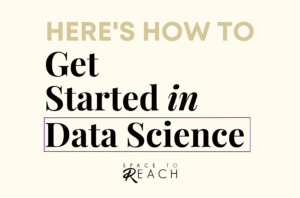
Fig O'Reilly Founder & CEO | Systems Engineer | Diversity in STEM Advocate
Over a decade ago, the role of data scientist was called the “Sexiest Job of the 21st Century.” Today, the job is more in demand than ever. Job postings for data scientists are significantly increasing and the U.S. Bureau of Labor Statistics, predicts data science will see more growth than almost any other field between now and 2029. To top it off, there may not be enough skilled applicants. Talk about bargaining power for job seekers aiming to specialize in this area.
According to the Harvard Business Review, “the assumption in 2012 was that data scientists could do all required tasks in a data science application — from conceptualizing the use case, to interfacing with business and technology stakeholders, to developing the algorithm and deploying it into production.” Now, however, more roles have emerged to handle many of those tasks, including machine learning engineer, data engineer, AI specialist, analytics and AI translators, and data oriented product managers.
Data science skills are in high demand, and can prove useful for everyone from business leaders to professionals looking to pursue a new career path. Whether you want to become a data scientist or just want to understand data science better, it’s a great time to get started. Read on to learn how to get started in data science, even if you currently have no data science background or skills!
What Skills Are Needed in Data Science?
Data Science involves a combination of strong analytical, programming, and also people skills. While rigorous analysis is at the heart of data science, it is almost equally important to be able to explain your results and their significance to stakeholders within the organization, who may not necessarily have the same level of scientific knowledge.
How To Become A Data Scientist
The best approach to becoming a data scientist depends on where you are in your career. If you are still in school or want to go back to school, there are a variety of areas of study that you may want to consider, including computer science or data science, and as you plan your education, bear in mind that you may need to consider graduate-level study in addition to a bachelor’s degree. Then, pursuing professional certifications and entry-level work experience will allow you to further your career goals. Thankfully, there isn’t just one path to becoming a data scientist. I’ve encountered very sharp data scientists, some who were humanities majors in college or got their start doing coding bootcamps online.
If you are an established professional in another field who wants to make a career change to work in data science, or looking to level up your skills, then a data science bootcamp or professional certifications might be the way to go. Given my background in systems engineering, I had some useful technical skills, but I needed to better understand algorithms and data engineering, so I applied and was accepted to a data science program with NASA. Depending on the particular position you’re looking for, you may also want to consider a Master’s program. These programs are great, but not needed if they don’t align with your schedule, finances, or long term educational goals.
No matter which stage of your career you are in, your path to becoming a data scientist will involve cultivating a mix of education and experience. In this day and age, education can be formal or informal, and may often involve getting familiar with the tools that data scientists use on a daily basis.
Getting Hired
One of the many benefits of pursuing a career as a data scientist is that you’ll have access to jobs across industries. You can apply to jobs at top beauty brands, social media platforms, aerospace companies, banking and finance institutions, the media and entertainment industry, and more. Many skills regardless of industry are transferable, but to get a leg up on applying, search current job listings using a platform like our Job Board which is stacked with roles curated for our community.
Though reviewing job postings can be helpful to get an idea of hard and soft skills needed for a job as a data scientist (which requires staying on top of the latest technologies), don’t think that you must meet each and every requirement. You may have heard that women apply to 20% less jobs than men. And unlike men, who apply for a job when they meet only 60% of the qualifications, women apply only if they meet 100% of them. In other words, we are self-selecting ourselves out of jobs before we even apply!

